
Eat Breakfast
Recent research suggests that breakfast is indeed an important meal of the day. A study done in the USA in 2002 revealed that skipping breakfast is associated with an increased prevalence of overweight and obesity. A study done in the USA in 2012 showed that consuming only two meals a day did not lead to increased fat oxidization. This evidence suggests that skipping meals will not make you thin. Eating breakfast is known to increase brain function in the short term. Breakfast enhances appetite control throughout the day, reduces total energy intake and improves endocrine responses (lowers blood sugar levels faster, maintains steady blood sugar levels, and maintains insulin sensitivity). Skipping breakfast was shown to actually increase the daily energy intake, something that leads to obesity.
- Important notification about information and brand names used in this slideshow!
- Photo courtesy of Robyn Lee by Flickr : www.flickr.com/photos/roboppy/5838768762/
- Clinical nutrition by Alan R Gaby

Drink Green Tea
Proving the ancient Chinese belief that green tea will bring good health, new research has confirmed its beneficial effects. Regular green tea consumption increases the basal metabolic rate and alertness. It is interesting to note that this increase in the metabolic rate after tea consumption does not return to the baseline for a long time. Green tea promotes body heat generation. Heat generation takes a lot of energy. Green tea consumption increases the fat oxidation by 12% to fulfill this requirement. Although some people attribute the weight losing effect of green tea to its caffeine content, a study done in 1999 revealed that regular green tea consumption promoted fat loss beyond the scope of its caffeine content.
- Important notification about information and brand names used in this slideshow!
- Photo courtesy of Pittaya Sroilong by Flickr : www.flickr.com/photos/pittaya/2689783876/
- Clinical nutrition by Alan R Gaby
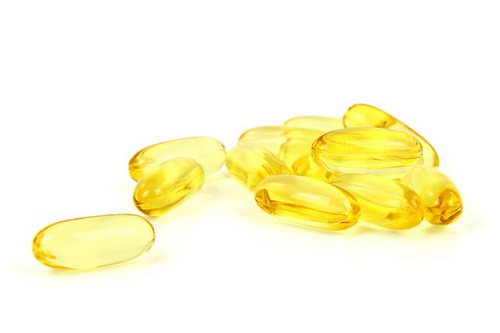
Go For Omega 3 Fatty Acids
Polyunsaturated fatty acids such as omega 3 and omega 6 fatty acids have beneficial health effects. Omega 3 fatty acids improve serum cholesterol levels in individuals with elevated levels. It reduces fasting triglyceride, HDL levels. In patients using omega 3 fatty acids, a reduction of acute inflammatory response to injurious agents has been noticed. This has been attributed to a reduced reactivity of platelets and white blood cells, resulting in lower levels of inflammatory mediators. These inflammatory mediators play a major role in blood vessel damage and atheromatous plaque formation. While consumption of omega 3 fatty acids is certainly healthy there has been no evidence to suggest that it may boost the metabolism.
- Important notification about information and brand names used in this slideshow!
- Photo courtesy of PublicDomainPictures by Pixabay : pixabay.com/en/capsule-capsules-cod-diet-fat-15570/
- Clinical nutrition by Alan R Gaby

Get Outside
Nothing beats the time spent outside breathing in fresh air, reducing stress and getting a healthy cardiovascular workout at the same time. Stress relief will reduce blood cortisol levels, improve insulin sensitivity and regulate blood sugar levels.
- Important notification about information and brand names used in this slideshow!
- Photo courtesy of lululemon athletica by Flickr : www.flickr.com/photos/lululemonathletica/3908348636/
- Clinical nutrition by Alan R Gaby

Go To The Gym For Some Muscle Building
During the day time muscle tissue is responsible for the majority of energy consumption, because of a person's high activity rate. The larger the muscle, the more energy it needs to contract. Therefore, building muscle is a sure way to ensure a high metabolic rate. Doing cardio will improve your endurance but it plays only a small part in bulking up. Resistance training is the best method to build up lean muscle. The work you do to build up muscle and the rise of metabolic rate will go a long way to burn fat and keep you lean and thin. Muscle tissue uses up fatty acids as well as glucose as substrates to produce energy.
- Important notification about information and brand names used in this slideshow!
- Photo courtesy of brewbooks by Flickr : www.flickr.com/photos/brewbooks/2048780295/
- A review of medical physiology by Ganong

Get Enough Sleep
During waking hours the body is in catabolic mode, breaking down substrates to provide energy for activities of day-to-day life. During sleep (especially the non REM sleep) the body switches into anabolic mode (building up, synthesizing) and the metabolism slows down and allows repair of all the wear and tear of a day’s hard work. Sleep deprivation will increase cortisol secretion (the fright, flight, fight hormone) and reduce thyroxin secretion (makes you lethargic and inactive). It also reduces the cellular sensitivity to insulin resulting in type 2 diabetes mellitus. Sleep deprivation tends to increase the appetite and is associated with overweight and obesity.
- Important notification about information and brand names used in this slideshow!
- Photo courtesy of Daniel Foster by Flickr : www.flickr.com/photos/danielfoster/4220444721/
- Review of medical physiology by Ganong

Include Snacking Into Everyday Routine
Snacking is beneficial in many ways if you stick to low calorie snacks. It will make you feel fuller during main meal times, and thereby prevents excessive food intake. It actually makes you eat less and reduces the total amount of energy intake per day. A regular snack in between meals helps maintain a more regular blood sugar level especially in diabetics. Highly unstable and fluctuating blood sugar levels are known to be associated with impaired insulin sensitivity, obesity and overweight. Care should be taken to reduce the calories taken as snacks from the main meals because your daily requirement remains the same.
- Important notification about information and brand names used in this slideshow!
- Photo courtesy of Renée S. Suen by Flickr : www.flickr.com/photos/sifu_renka/6973498445/
- Clinical nutrition by Alan R Gaby
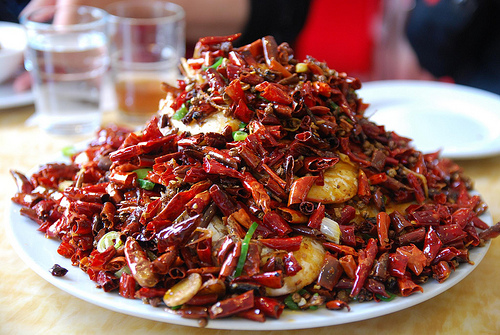
Go For Spicy Foods
Spicy food contains chilies or pepper. If it is not so there are commercial preparations to make food spicy. All these contain a common compound known as capsaicin. It is a highly irritant molecule that causes a burning sensation on any type of tissue it touches. Capsaicin increases the heat production of the body, lowering blood sugar levels because glucose is spent producing heat and not ATP (a high energy compound synthesized in the body). It is also thought that spicy food makes you feel fuller and thereby prevents overeating. Leptin is a compound which signals hunger in the human body. Studies have shown that spicy food may reduce the leptin response to low blood sugar levels.
- Important notification about information and brand names used in this slideshow!
- Photo courtesy of Alpha by Flickr : www.flickr.com/photos/avlxyz/7978587586/
- The capsaicin receptor: heat activated ion channel in the pain pathway by MJ Cathrine et al

Go For Protein-Rich Food
An adequate supply of proteins is essential to develop lean muscle. Skeletal muscle uses amino acid, fatty acids and glucose as substrates for energy production. If you have more muscle you will burn more calories during exercise. Large muscles need a large amount of energy just to keep going. The digestive process itself requires a certain amount of energy. Digesting proteins with large side chains takes up much more energy compared to the digestion of carbohydrates. Keep in mind that certain diseases actually contraindicate a high protein diet, so consult your healthcare provider if you have any doubts about your dietary requirements.
- Important notification about information and brand names used in this slideshow!
- Photo courtesy of Rusty Clark by Flickr : www.flickr.com/photos/rusty_clark/7604844720/
- Clinical nutrition by Alan R Gaby
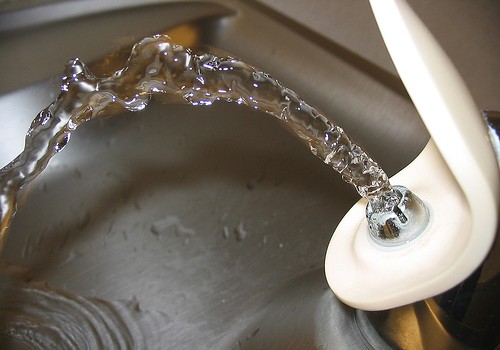
Drink Plenty Of Water
Food is digested by hydrolysis. When a large molecule like glycogen is broken into its component units water molecules are incorporated in to the reaction. A large amount of water is needed for the digestion of proteins, carbohydrates and lipids. Because biological reactions are in a dynamic balance, water intake tends to promote hydrolytic reactions. In dehydration the energy production is minimized. Kidneys are the organs which maintain the water and electrolyte balance. When water intake is high, more water and electrolytes are filtered, reabsorbed and secreted. These transport mechanisms require energy. Therefore the net energy expenditure of kidneys increases with rising water intake. The rate of water intake should not exceed 16ml/min to avoid features of water intoxication.
- Important notification about information and brand names used in this slideshow!
- Photo courtesy of Josh by Flickr : www.flickr.com/photos/joshme17/1751994184/
- Review of medical physiology by Ganong








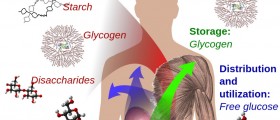







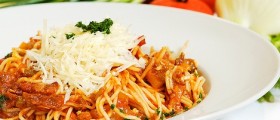










Your thoughts on this
Loading...